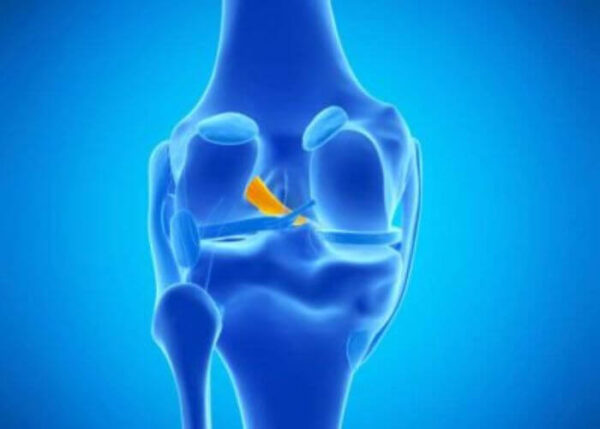ACL Revision Surgeon

Are you an athlete who participates in sports that involve jumping or quick stopping? If so, you may be at risk of tearing your anterior cruciate ligament, or ACL. In most cases, when an ACL reconstruction fails an ACL revision surgery is recommended to restore anatomy and function to the knee. ACL revision surgeon, Dr. Matthew Provencher provides diagnosis and both surgical and nonsurgical treatment options for patients in Vail who have suffered a failed ACL reconstruction. Contact Dr. Provencher’s team today!
What is a Revision ACL Reconstruction?
The ACL (anterior cruciate ligament) is the most commonly torn ligament in the knee, often associated with the athletic population. The ACL serves an important role within the knee joint by providing stability during twisting and rotational movements. The ligament also prevents the tibia (shinbone) from moving too far forward in relation to the femur (thighbone). The ACL does not usually heal on its own if an injury occurs, due to its poor blood supply and the overall anatomy of the knee joint. Because of this, many athletes and active individuals undergo an ACL reconstruction procedure to return full function and stability to the injured joint. Even though ACL surgery to repair a torn ligament is quite effective, a patient may experience a re-tear. Dr. Matthew Provencher, orthopedic knee surgeon, commonly recommends a revision ACL reconstruction in cases of a ligament re-tear. This form of knee revision surgery helps return Vail, Aspen, Colorado Springs and Denver, Colorado patients to their active lifestyle.

What Causes an ACL Reconstruction to Fail?
A poorly positioned ACL graft from the original surgical procedure is the most common cause of a failed reconstruction. A patient may also experience a re-tear of the ligament from not following rehabilitation guidelines, returning to athletic activities too quickly, or from new trauma to the ligament. Malalignment of a lower extremity, such as knocked knees or bow leggedness, may cause a failed reconstruction due to the knees experiencing uneven stress loads because of poor leg alignment.
When to have Revision ACL Surgery
If a knee revision surgery is necessary, Dr. Provencher will examine the injured joint in great detail to determine the exact cause of failure. By determining the cause of a failed ACL reconstruction, he can help eliminate the risk of a second failed procedure. New diagnostic testing images will be performed to determine the quality of bone and soft tissue structures within the knee joint.
Dr. Provencher typically performs a revision ACL reconstruction immediately following a re-tear in order to return full function, mobility, and stability to the joint. Much like primary (first intervention) ACL surgery, an allograft (donor tissue) or autograft (tissue harvested from the patient) will be utilized to perform the reconstruction of the damaged ligament. Dr. Provencher will determine the correct graft type based on previous graft choice.
How is Revision ACL Surgery Performed
If a patient experiences loss of bone quality after the original treatment, Dr. Provencher may need to perform a staged knee revision surgery. A staged procedure involves Dr. Provencher performing a bone grafting procedure to fill damaged areas with new bone, followed by a revision ACL reconstruction 4-6 months later. Patients with a malalignment of the lower extremity are also treated with a staged procedure in many cases.
It is important to note that an ACL reconstruction is very successful in most patients. A revision ACL reconstruction is also very successful but less so than the original surgery. This is due to the revision procedure and re-tear of the ligament.
What is the Recovery Following Revision ACL Reconstruction?
After a knee revision surgery for a torn ACL, patients will be encouraged to use crutches for two weeks and a functional knee brace for a set time determined by Dr. Provencher. Patients will also be encouraged to participate in a detailed physical therapy program to help reduce the risk of another failed repair. It is strongly suggested that patients work with the in-house physical therapists at Howard Head Sports Medicine to optimize their rehabilitation. Many patients can expect a full return to activities in 9-12 months if rehabilitation protocols are followed.
For additional information on revision ACL reconstruction, or to learn more about knee revision surgery, please contact the orthopedic office of knee surgeon Dr. Matthew Provencher, serving patients in Vail, Aspen, Colorado Springs and Denver, Colorado.